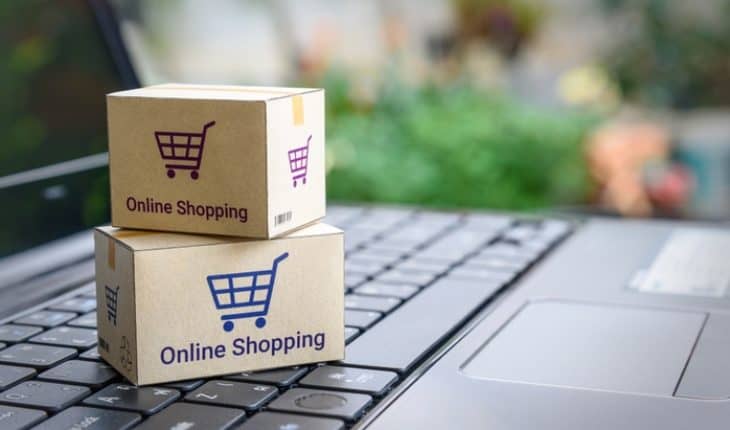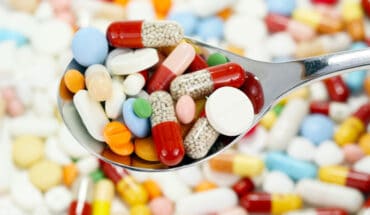Just one example of hundreds of businesses that have sprung up.
These websites promise web to door delivery, often within just a day, stocking hundreds of medications to choose from.
This model fits in well with modern life. Consumers are used to quick internet delivery services, such as Amazon for books and devices, food delivery from supermarkets and countless other home delivery shopping platforms.
But medicines (from codeine to Viagra) are not the same as commodities like chocolate and trainers. Most need a prescription and advice from trained medical professionals before they can be taken. The drugs could interact with other medication, cause life threatening side effects and generally make people unwell.
Although these pharmacies do legally require online ‘pharmacist appointments’ to prescribe the medication they subsequently deliver, such online appointments are not thorough enough to substitute a face-to-face GP appointment.
The dangers with online pharmacies are threefold:
- Drug content may be unsafe.
- Inappropriate prescriptions are often given.
- Complications arise as a result of misuse of drugs (specifically, opioids & benzodiazepines).
A survey found that 25% of people said they would continue using online pharmacy services, but 50% of those who would not were concerned about their safety.
New Regulations as of April 2019:
Happily, the government announced on the 16th April 2019 that new regulations will come into force to safeguard patients. One regulation will prevent patients from purchasing medication without an adequate prescription, for example. The details of the new regulations are reviewed below. Whilst they are a welcome and necessary addition, it is equally vital that UK patients learn more about the nature of online pharmacies and the dangers of certain drugs so that they can make informed and sensible decisions when it comes to online purchases.
Drug content: is it safe?
In 2015, Eloise Aimee Parry tragically died after taking diet pills bought online.
Although the drugs may seem safe, they are often not the same compounds as those purchased by the NHS.
They may be created in foreign countries which do not have similar legal advice on manufacturing of drugs. Or, they may be intentionally purchased from cheap factories which unscrupulously create cheap counterfeit versions of medications. Many of these factories exist in foreign countries.
Guidance from the NHS:
Medication, such as Viagra for erectile dysfunction, and the cholesterol-lowering medication Lipitor (Atorvastatin), are often readily available and sold cheaply online without a GP prescription or the advice of a pharmacist.
But this is risky because such medication should only be taken under the supervision of a healthcare professional. Their guidance on whether a medication is suitable for you, the dosage, possible side effects, and any harmful interactions with other medications is crucial.
Medication from an unregistered website could also be dangerous to your health because it might be out-of-date, diluted or fake.
To look at the NHS web page on online pharmacists, click here
Inappropriate prescriptions:
To obviate the need for prescriptions, many websites offer ‘online appointments’ with pharmacists, who can prescribe medication online without ever meeting or speaking with the customer.
It is shamefully easy to order drugs that might not be good for you and could actively do you harm.
In August 2018, BBC Panorama aired a programme in which volunteer former opioid addicts gave false medical records to online pharmacies and were able to order serious opioid and diazepine style drugs, which were then delivered straight to them within 24 hours of ordering.
These would never have been prescribed by their GPs.
A former anorexia survivor described how easy it was for her to order boxes of diet pills, which, had she still been ill, could have been incredibly dangerous.
Never mind faking a medical record, it is also shockingly easy to access medication without any prescription at all. In 2015, Pfizer, the MHRA and others found in a survey that 15% of British adults had bought a prescription drug without a prescription.
Link with opioid misuse:
Read our article on opioid misuse in the UK and whether it is heading in the same direction as America where there are 130 deaths per day from opioid abuse click here
Benzodiazepine Addiction:
You may well have heard of Xanax and Valium. They work by increasing the effect of a brain chemical called GABA (gamma amino butyric acid). GABA reduces brain activity in the areas of the brain responsible for:
- rational thought
- memory
- emotions
- essential functions, such as breathing.
The main effects of benzodiazepines are sedation, reduced anxiety and muscle relaxation.
Young people are increasingly using these drugs, often known to them as Xanax or Valium. This is conjunction with a rise in mental health problems such as anxiety which the drugs help to relieve by calming the brain and body. As documented in the press, anxiety conditions are rising amongst young people. These pills are now common street drugs which means many young people will be exposed to them.
The drugs are also used to increase the effects of alcohol or other stimulants, creating dangerous and unpredictable cocktails. This means many use them at house parties, clubs or other venues.
People build up a tolerance to these drugs quickly, and often escalate the amount they are taking very rapidly to achieve the same relaxed state. This means the risk of overdose is huge, compounded by the fact that due to there being no regulated sales of Xanax in the UK, you can never know how strong a batch is.
Xanax can’t be obtained through the NHS, so people are buying it on the street and from private companies. It is sometimes laced with fentanyl, increasing its risk. Pfizer, the pharmaceutical company, are worried about counterfeit production in India.
At least 204 deaths have been linked to the misuse of Xanax in the UK since 2015. Of these, 126 fatalities were in Scotland between 2015 and 2017.
Groups who tend to become addicted:
In 2010, most drug users were cocaine and heroin addicts. Dr Owen Bowden-Jones who founded the ‘Club Drug Clinic’ states that nowadays young people are far more likely to report prescription drug addiction. Their problems are overwhelmingly with benzodiazepines. These are drugs that act as a sedative – slowing down the body’s functions – and are used for both sleeping problems and anxiety (both are of higher prevalence in younger people).
What should we do?
Some concerned Britons have suggested trying to control internet servers in order to block the sale and supply of medicine online.
There is also the concern that if doctors suddenly stop prescribing opioids, then addicts will flock to online sources to get their fix.
This would be in some ways worse, as the online retailers often stock dodgy drugs that might be mixtures of substances and could well be mislabelled. This makes such drugs immediately dangerous, as well as being addictive and harmful in the long run.
Interestingly, Britain is one of only six EU countries to permit online trading of prescription medicines. This has led to citizens of other European countries, such as France, purchasing prescription drugs through British systems. This legal loophole has not best-pleased these European foreign authorities, for whom a law is being broken.
For Britain though, it is a completely legal practice.
There are, however, many reasons to be positive about the invention of online health platforms. They can relieve the NHS of some of the financial burdens overloading its systems. If consumers are receiving the appropriate drugs, websites can offer a genuinely helpful service for those with reduced mobility or time.
But the relationship between the rise of online pharmacies and prescription drug addiction is a disturbing mutual trend, and one that there seems to be no easy solution to.
Could education help?
Education could be one route to protect the younger generation. The decrease in heroin addiction suggests that the anti-heroin message after the 1990s really did work with young people, who are far less likely to be taking heroin.
People remain under-informed about the dangers of accepting strong painkillers, and of the risk of ordering medications over the internet. This should change.
Pills and prescriptions should only be a small part of a patient’s treatment, and certainly should be very carefully assessed if being given for chronic pain. We have a culture of expecting medication when we visit our doctors. This has led to major issues with antibiotic resistance and an explosion of patients prescribed inappropriate or inefficient medication for pain, sleep, anxiety and many other conditions, that could be better treated with other therapies.
What has the government just announced?
New regulations were announced in April 2019. These focus on:
- Ensuring medicines are clinically appropriate for patients.
This involves implementing robust processes to carry out identity checks on patients. Clearly, these are not being performed properly at the present moment. The pharmacy team will be able to identify medicine requests that are potentially dangerous – such as multiple requests for orders to the same address, or matching payment details. Prescription medication access will now be limited to patients who have had an ‘appropriate consultation with a prescriber’.
2. Safeguarding in the case of certain categories of medicines.
Further safeguards will be placed on those requesting antibiotics, non-surgical cosmetic medicinal products (e.g. Botox), medicines liable to abuse (e.g. opiates, benzodiazepines, laxatives) and medicines requiring ongoing monitoring (e.g. diabetes, asthma, epilepsy medications). When ordering these medicines, the prescriber will proactively have to share all relevant information about the prescription with the patient’s GP.
To read about the dangers of antibiotic resistance, increased by online pharmacy culture, click here.
3. Transparency about the origin of the medicine being sold.
4. UK regulations being applied to foreign pharmacy prescribers working with UK pharmacies.
Going forward
These new regulations have been well received by the General Pharmaceutical Council. If anything ,they show how under regulated online pharmacies have been up till now. Hopefully, the new laws will reduce the ease with which some vulnerable people are over-purchasing medication in a dangerous way.
However, undoubtedly there will still be ways for people to access medication in an unsafe manner.
This is why it is so important to be aware of the dangers of online pharmacies. You should always look for the GPC’s ‘Registered Pharmacy’ sticker and you can search their database here. It is wise to do so before making a purchase.
Also, stay vigilant of the addictive qualities of opioids and benzodiazepines. If a doctor suggests you start taking one of these (if treating a sleeping problem or chronic pain) take the time to consider your options carefully.
- What is a seizure? - 13th March 2025
- Febrile Convulsions and Seizures in Children - 13th March 2025
- Why women are less likely to receive CPR or survive cardiac arrest - 6th March 2025








